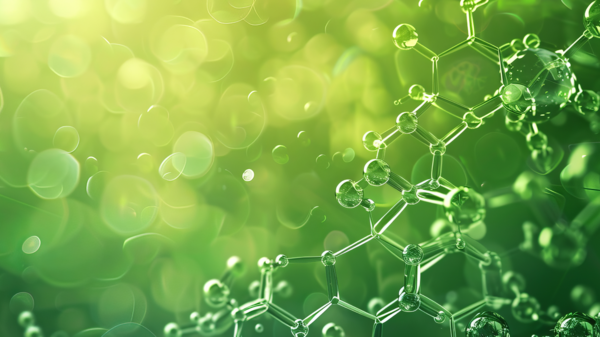A groundbreaking new biologic targeting interferon-driven autoimmune diseases has earned Professor Claudia Nold the top prize at this year’s Early-Stage Innovation Forum (ESIF), held during the AusBiotech International Conference 2025 in Melbourne.
Professor Nold, Group Head of Interventional Immunology at Monash University and the Hudson Institute of Medical Research, was selected by an expert judging panel for her work on IL-38Fc, a potential first-in-class therapy designed to calm the overactive immune pathways that drive conditions such as systemic lupus erythematosus (SLE), Sjögren’s syndrome and systemic sclerosis.
Her pitch, A Novel Checkpoint Biologic for Interferon-Driven Autoimmune Diseases (Interferonopathies), was judged the most compelling among a highly competitive field of emerging biotech innovators.
AusBiotech said the Forum continues to play a crucial role in bringing bold new ideas to the national stage. ESIF, held twice each year at the AusMedtech and AusBiotech conferences, offers researchers and emerging companies the opportunity to refine their concepts, receive expert critique, and build commercialisation networks across biotechnology, medtech and digital health. This year’s cohort delivered rapid-fire pitches to a panel representing industry, investment and global pharmaceutical partners.
“This is an incredible opportunity to receive valuable feedback from industry-leading biotech experts and be able to spark both national and international interest in early-stage innovations developed here in Australia,” Professor Nold said following the announcement.
AusBiotech Deputy CEO Rosanne Hyland praised the calibre of this year’s ESIF participants, noting the difficulty faced by judges in selecting a winner. “The judges said the competition was incredibly tight, and they were impressed by the creativity, technical rigour, and potential for impact across all the projects presented,” she said.
Professor Nold’s winning work centres on IL-38Fc, a biologic that harnesses the body’s own anti-inflammatory mechanisms to modulate the immune system. By targeting an early checkpoint in the interferon signalling cascade, the therapy aims to prevent the excessive immune activation characteristic of multiple autoimmune diseases. Only two targeted therapies are currently approved globally for SLE, highlighting the scale of the unmet need.
“We are a team of clinicians and scientists working together to harness the potential of endogenous anti-inflammatory cytokines and advance them into therapies for difficult-to-treat autoinflammatory and autoimmune diseases,” Professor Nold said. “It takes a village to raise a child and at least a city to bring a drug to market.”
The IL-38Fc program has been developed through a Monash–BioCurate partnership, drawing together expertise from immunology, structural biology, protein engineering, rheumatology and neonatal medicine. The team is now seeking investment to advance the biologic through preclinical and IND-enabling studies, with the intent to enter clinical development within 2 years.
Professor Nold’s career spans Germany, Sweden and the United States, including training under cytokine biology pioneer Professor Charles Dinarello. Since joining Monash University in 2009, she has received major fellowships from the NHMRC and the Heart Foundation, as well as the Monash Vice-Chancellor’s Award for Research Enterprise. She is also widely regarded for her mentorship and her leadership in promoting women in science.
In accepting the award, Professor Nold thanked AusBiotech and the ESIF panel “for supporting research translation that builds on basic science and helping to drive change in the lives of patients and their families.”
